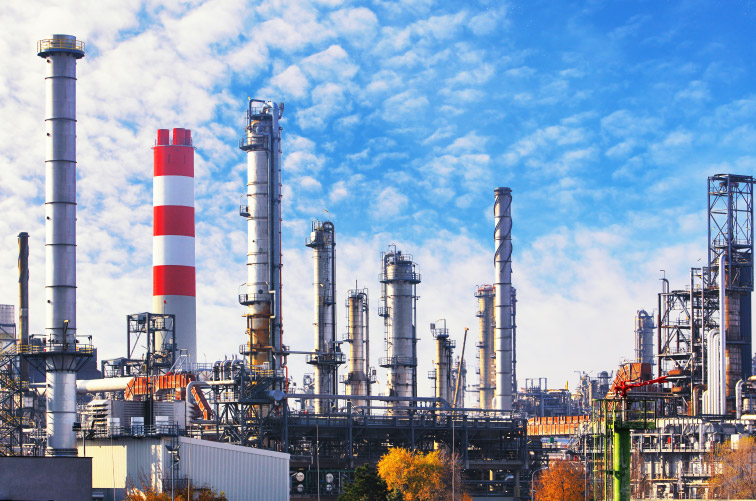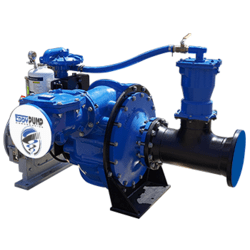Application of EDDY Pump in the Petrochemical Industry



Application of Our Slurry Pumps in Petrochemical Industry

- Refinery processes: An abrasive handling pump is employed in refinery processes to handle various abrasive and corrosive slurries, such as catalysts, crude oil, tar, asphalt, and other heavy liquids that contain solid particles. These pumps are essential for transferring these substances throughout the refining process.
- Desulphurization: In the petrochemical industry, flue gas desulphurization (FGD) is carried out to remove sulfur dioxide from the flue gases. The slurry transport pump transports limestone slurry, which is used as an absorbent to react with sulfur dioxide and form gypsum.
- Sludge handling: An abrasive handling pump is utilized for handling sludges generated during various petrochemical processes. These sludges are often thick and contain a high concentration of solid particles, which require specialized pumps to transport them efficiently.
- Petrochemical wastewater treatment: A slurry transport pump is used in wastewater treatment systems to transfer wastewater containing suspended solids, common in petrochemical plants.
- Hydrotransport: Slurry pumps transport heavy crude oil or bitumen through pipelines from extraction sites to processing plants in hydrotransport systems.
- Abrasive material transfer: Petrochemical industries may also need to handle abrasive materials like abrasive sands, metal particles, or industrial by-products, which can be efficiently transported using an abrasive handling pump.
- Pipeline transport: Slurry transport pumps sometimes pump viscous crude oil or heavy hydrocarbons through pipelines over long distances.
- Bauxite Slurry Transport: A slurry transport pump transports bauxite slurry during alumina production from bauxite ore.
- Ethanol Production: Slurry pumps produce ethanol to handle the mash containing solid materials.
- Coal Washing: A slurry transport pump is utilized in coal washing processes to transport coal slurries and remove impurities.
- Bottom Ash Handling: Power plants and petrochemical facilities use a mining slurry pump to handle the bottom ash produced from coal combustion or other solid fuels.
- Tar Sand and Tailings Handling: A mining slurry pump transports tar sand and tailings from extraction sites and mineral processing facilities.
CALL FOR SALES OR SUPPORT
If you need help with Pump Selection, Sales or Engineering Support
Call 619-345-5446

Application of EDDY Pump’s Hydraulic Dredging in the Petrochemical Industry

- Dredging of Waterways: Petrochemical facilities often require the maintenance and dredging of nearby waterways, such as rivers, canals, and ports, to ensure navigability for ships and barges carrying petrochemical products.
- Maintenance of Cooling Water Intakes: Petrochemical plants utilize large amounts of cooling water. Submersible hydraulic dredge is employed to clear and maintain the intake structures, ensuring the smooth flow of water and preventing clogging caused by sediment accumulation.
- Removal of Sediments in Ponds and Lagoons: Petrochemical plants may have ponds or lagoons used for wastewater treatment or storage. Submersible hydraulic dredge is used to remove accumulated sediments and maintain the storage capacity of these facilities.
- Dredging for Pipeline and Cable Trenching: When installing underwater pipelines or cables for transporting petrochemical products or electrical power, a hydraulic dredger is used to create trenches and ensure the proper laying and protection of these infrastructure components.
- Land Reclamation: In some petrochemical projects, a hydraulic dredger is employed for land reclamation activities, where areas are reclaimed from the sea or other water bodies to create additional space for industrial facilities.
- Cleanup of Oil Spills and Contaminated Areas: In the unfortunate event of an oil spill or environmental contamination, hydraulic dredging can remove oil, pollutants, and sediments from affected water bodies.
- Removal of Underwater Debris: Petrochemical facilities may generate debris or materials that end up underwater. Submersible hydraulic dredge is utilized to clean and remove such debris from the water.
- Dredging for Infrastructure Construction: When constructing new petrochemical facilities or expanding existing ones, hydraulic dredging can create berths, access channels, and foundation areas for structures.
- Offshore Platform Maintenance: Offshore petrochemical platforms can accumulate sediment and debris around their support structures over time. Hydraulic dredger maintains a clear area around these platforms, facilitating safe access for maintenance and inspection activities.




